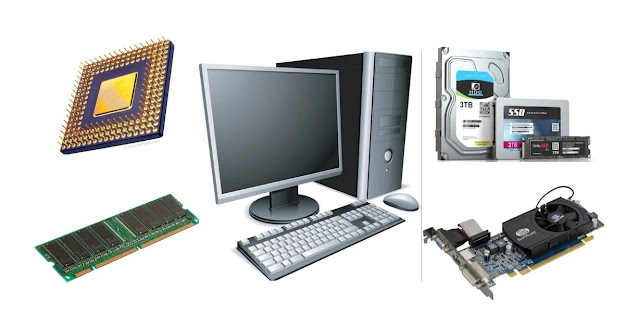Factors Affecting Computer Performance
Explore the key factors influencing computer performance. Learn how to optimize your system for peak efficiency and speed.
Introduction
In today's digital age, computer performance is a critical aspect that directly impacts our daily tasks, whether at work or leisure. When your computer operates efficiently, you can complete tasks faster, enjoy smoother gaming experiences, and increase overall productivity. However, several factors can influence your computer's performance. In this article, we will delve into the key factors that affect your computer's speed and responsiveness.
Hardware Components
1. Processor (CPU)
The central processing unit (CPU) is often referred to as the brain of your computer. Its clock speed, number of cores, and cache size significantly impact its performance. Upgrading to a faster and multi-core CPU can lead to noticeable improvements in tasks that require processing power, such as video editing or 3D rendering.
2. Random Access Memory (RAM)
RAM plays a crucial role in multitasking. If your computer has insufficient RAM, it may slow down when running multiple applications simultaneously. Upgrading your RAM can result in a noticeable speed boost.
3. Storage Drive (HDD/SSD)
Traditional hard disk drives (HDDs) are slower than solid-state drives (SSDs). Upgrading from an HDD to an SSD can dramatically reduce boot times and application loading times.
4. Graphics Card (GPU)
For gamers and those involved in graphics-intensive tasks, a dedicated graphics card can significantly improve performance. A powerful GPU ensures smoother gameplay and faster rendering.
Software Factors
5. Operating System
The choice of operating system matters. Some operating systems are more resource-efficient than others. For example, Linux distributions are known for their lightweight nature, while Windows may require more resources.
6. Software Bloat
Installing numerous software applications can lead to bloat, slowing down your computer. Uninstalling unnecessary programs and keeping your software up-to-date can help maintain performance.
7. Malware and Viruses
Malicious software can severely affect your computer's performance. Installing reputable antivirus software and conducting regular scans is essential.
User Practices
8. Multitasking
Simultaneously running numerous applications can place a heavy load on your computer's resources. Closing unnecessary programs can free up RAM and CPU resources.
9. File Organization
A cluttered hard drive can slow down file access times. Regularly organizing and cleaning up your files can help maintain performance.
Software Optimization
10. Update Your Software
Outdated software can be a bottleneck for your computer's performance. Regularly updating your operating system, drivers, and applications ensures that you have access to the latest optimizations and security patches.
11. Startup Programs
Many applications set themselves to start automatically when you boot your computer. These startup programs can slow down your boot time and consume valuable resources. Managing your startup programs can help improve boot speed and overall performance.
12. Background Processes
Windows and other operating systems often run background processes that may not be immediately apparent. Some of these processes can consume significant resources. You can use the Task Manager (Ctrl+Shift+Esc) to identify and, if necessary, terminate resource-hungry processes.
Cooling and Maintenance
13. Overheating
Excessive heat can lead to performance throttling or even hardware damage. Ensure that your computer is adequately cooled by cleaning dust from fans and heatsinks regularly. Consider adding additional cooling solutions if you engage in resource-intensive tasks like gaming or video editing.
Internet Connection
14. Network Speed
For tasks that require internet access, a slow network connection can make your computer seem sluggish. Make sure you have a stable and high-speed internet connection to avoid slow loading times and interruptions during online activities.
External Devices
15. USB Devices
Connected USB devices can draw power and bandwidth from your computer. Disconnect unnecessary USB devices to free up resources.
Hardware Upgrades
16. Additional RAM
If your computer struggles with multitasking, consider adding more RAM. This upgrade can be particularly beneficial for users who frequently work with large files or run memory-intensive applications.
17. SSD Upgrade
As mentioned earlier, replacing your traditional HDD with an SSD can be one of the most noticeable upgrades you can make. Not only does it improve boot times, but it also enhances the overall responsiveness of your system.
Conclusion
In conclusion, a combination of hardware components, software optimization, user practices, and maintenance factors can significantly impact your computer's performance. By addressing these aspects, you can ensure that your computer operates at its best, whether you're working, gaming, or simply browsing the internet. Regularly maintaining your system and staying mindful of your computing habits can go a long way in enhancing your overall computer experience.Understanding the factors that influence computer performance is crucial for ensuring your system runs at its best. By paying attention to hardware components, software choices, and your own computing practices, you can optimize your computer's speed and responsiveness, ultimately enhancing your overall digital experience.






No comments